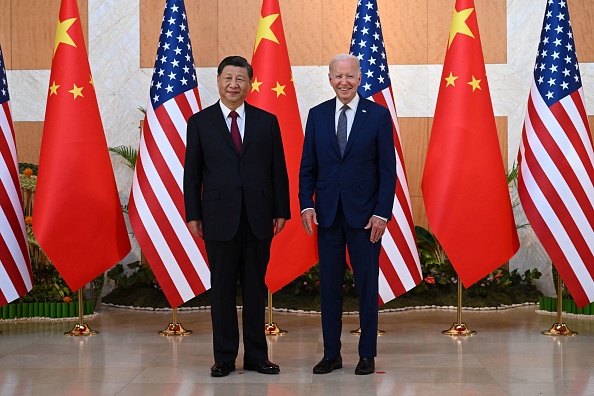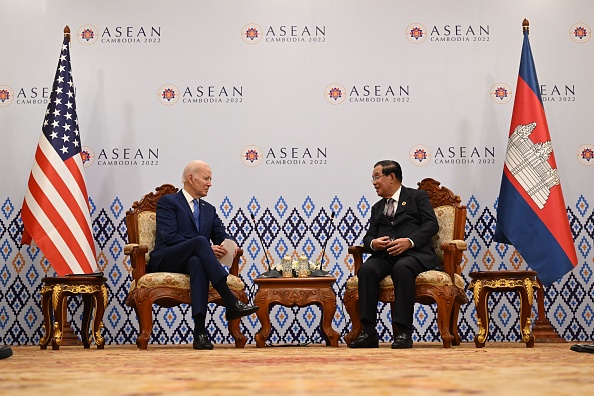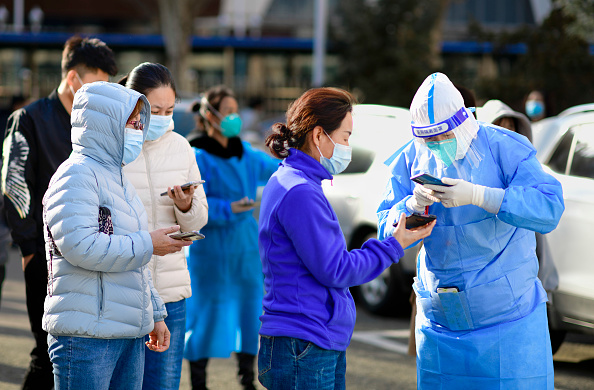
 Thawing Ties?
Thawing Ties?On the sidelines of the G20 Summit, U.S. President Joe Biden met with Chinese President Xi Jinping, in the first in-person meeting between the leaders since Biden became President. Tensions between China and the U.S. have been rapidly deteriorating over issues like Taiwan and global trade, so expectations were fairly low going into Monday's summit. However, after three hours of meeting, both leaders expressed an openness to repairing the relationship and restoring channels of communication over a variety of issues, including climate change, health, and food security.
"The two presidents agreed that their respective diplomatic teams should maintain strategic communication and conduct regular consultations; their financial teams will continue dialogue and coordination on macroeconomic policies, economic ties and trade ...They agreed to make good use of the China-U.S. joint working group to promote the resolution of more issues," a readout from China's Foreign Ministry said.
However, there are still thorny issues remaining in the relationship, including divisions over Taiwan and Russia's invasion of Ukraine. When pressed by journalists about the fractious issue of the future of Taiwan, Biden added: "I'm not suggesting this is Kumbaya."
Biden framed the U.S.' rivalry with China as "democracy versus authoritarianism," whereas Xi apparently pushed back and claimed that China has a "Chinese-style democracy." He said neither the U.S. nor China "should try to remake the other in one's own image, or seek to change or even subvert the other's system."
The two leaders also discussed human rights, semiconductor technology, and North Korea, and reaffirmed that they opposed the use of nuclear weapons in Ukraine. Xi reiterated China's calls for peace in Ukraine, while adding there was "no simple solution to a complex problem."
The State Department said that Secretary of State Antony Blinken will visit China in person sometime early next year to follow up on the Xi-Biden meeting.
Read more in "A Thaw in the Tropics? Presidents Biden and Xi Lower the Temperature in Bali," by David Shambaugh, a Gaston Sigur Professor of Asian Studies and Director of the China Policy Program at George Washington University.
 Competition vs. Conflict
Competition vs. ConflictPrior to attending the G20 Summit, President Biden touched down in Cambodia where he assured ASEAN members that the U.S. would remain competitive with China but that lines of communication would stay open to prevent conflict.
At his third ASEAN Summit as President, Biden stressed the importance of peace in the Taiwan Strait and freedom of navigation in the South China Sea. He also vowed to continue speaking out over China's alleged human rights record, condemned Russia's "brutal and unjust" invasion of Ukraine and called on Myanmar's military rulers to follow a peace plan.
"We will build a better future we all say we want to see for all one billion people in our countries," said Biden.
Divisions over China loomed large over the Summit, with the host country Cambodia tamping down any debate over China's maritime movements. The Philippines, Indonesia, Vietnam, and Singapore, however, have all hewed closer to the United States in recent years, voicing their concerns over China's behavior on the global stage.
Learn more in "China's Neighborhood Diplomacy Under Xi's Third Term," by Lucio Blanco Pitlo III, a Research Fellow at the Asia-Pacific Pathways to Progress.
 A Slow Change
A Slow ChangeBeijing's strict zero-Covid policy received some minor but meaningful changes last week, which raised hopes for China's eventual reopening.
China's National Health Commission announced the adjustment to the measures that include a shortened quarantine time for inbound travelers, a decrease in quarantine for "close contacts," the dropping of secondary contact identification, and more.
We must "continue to rectify the practice of excessive measures such as lockdowns and oppose the irresponsibility of evading a solution by loosening up," said NHC spokesman Mi Feng at a press briefing. At the briefing, plans were also unveiled to build stronger capacity to handle severe cases in designated Covid-19 hospitals.
But China's State Council has urged local authorities to avoid "irresponsible loosening" of Covid-19 measures, after the relaxations led to multiple Chinese cities canceling routine mass testing and other requirements.
The government has emphasized that the changes are not an end to the policy, but a way to optimize the containment strategy. Experts also believe that the reductions aren't indications of major changes in the policy anytime soon, but rather, a return to the measures prior to the rash of outbreaks at the beginning of this year that led to an increase in restrictions.
Prepared by China-US Focus editorial teams in Hong Kong and New York, this weekly newsletter offers you snap shots of latest trends and developments emerging from China every week, while adding a dose of historical perspective.
- 2022-11-11 Face to Face
- 2022-11-04 The Pacing Challenge
- 2022-10-28 Third Time’s the Charm
- 2022-10-21 United as Steel
- 2022-10-14 Party Time
- 2022-10-07 Elections Incoming
- 2022-09-30 Hot Intrigue
- 2022-09-23 Global Gridlock
- 2022-09-16 Injecting Stability
- 2022-09-09 Cutting Edges
- 2022-09-01 A Win for Global Business
- 2022-08-26 A Heavy Price
- 2022-08-19 Risky Business
- 2022-08-12 Backtracking
- 2022-08-05 Cross-Strait Outrage
- 2022-07-29 Playing with Fire
- 2022-07-22 Nixonian Flexibility
- 2022-07-15 List Diplomacy
- 2022-07-08 Easing Tariffs, Not Tensions
- 2022-07-01 Getting Tough